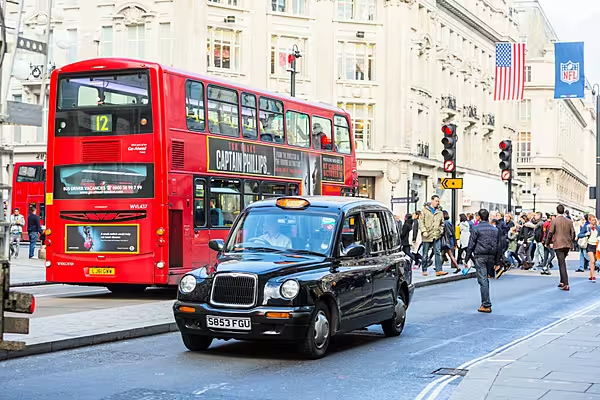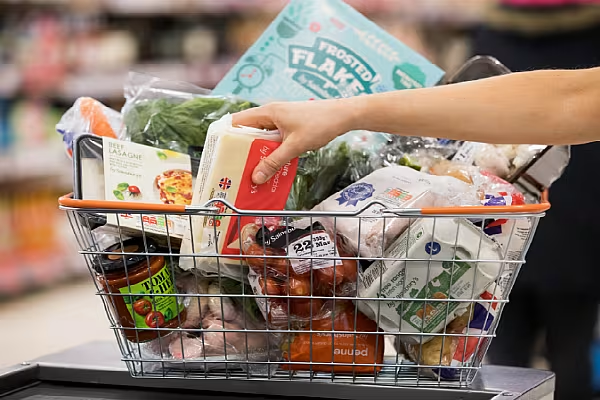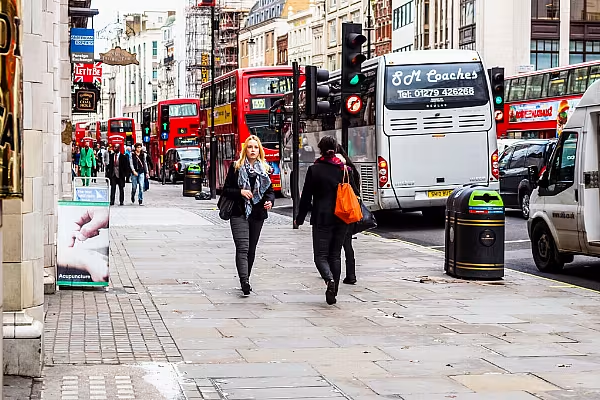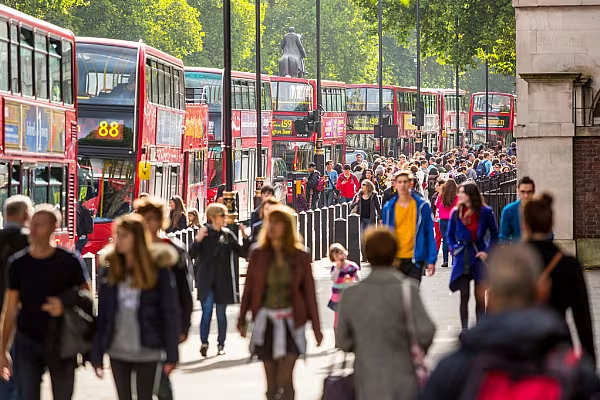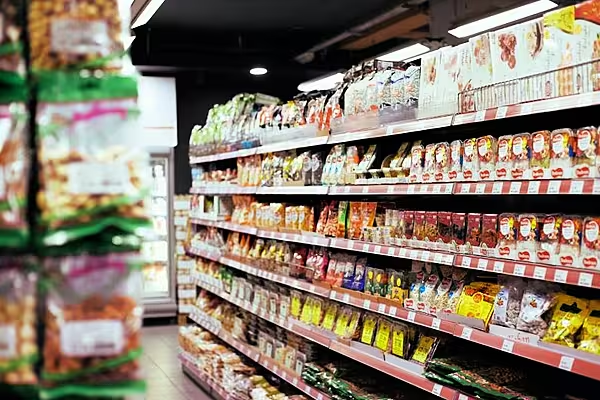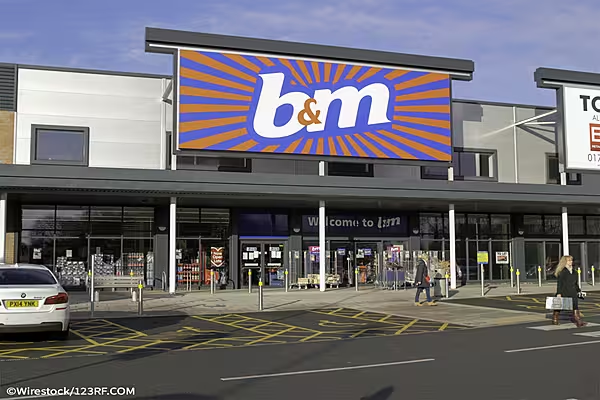UK consumer spending growth slowed in the second quarter as car sales fell and business investment stagnated, holding back economic momentum.
The 0.1% increase in household expenditure was the weakest since 2014 and meant consumer activity added just 0.1 percentage point to gross domestic product. Business investment flatlined and net trade failed to contribute to growth for a second consecutive quarter. Car sales declined after a strong first quarter, when demand was boosted ahead of a tax change.
The economy grew 0.3% in the period, unrevised from an initial estimate. Over the first six months of the year, it recorded its weakest performance since 2012, and the Office for National Statistics said expansion has “slowed markedly.” The pound was little changed after the report at $1.2815.
“Overall, this data confirms the picture of a moderation in UK growth that we expect to continue through the second half of the year,” said John Hawksworth, chief economist at PwC. “But we don’t think this slowdown should turn into a recession.”
Slowing Growth
Growth has slowed sharply this year as the fall in the pound in the wake of the Brexit vote boosts inflation and reduces spending power. Reports last week showed shoppers are flagging, with spending growth slowing and evidence that customers are switching to cheaper brands to save money.
That’s stripping the economy of its most consistent and important support over the past two years, and tallies with Bank of England Governor Mark Carney’s warning earlier this month that consumers are in the “teeth” of a squeeze on their pockets, which they’re going to have to ride out for the rest of the year.
Confidence among consumers and businesses is also weakening amid slow progress in Brexit talks and as yet little clarity on the type of deal with UK will secure after it leaves the European Union.
While the dire predictions made before the referendum haven’t come to pass, the economy has entered a slower growth phase of about half the pace of the past four years. Economists surveyed by Bloomberg see expansion cooling to 1.5% this year and 1.3% in 2018, down from 1.8% in 2016.
News by Bloomberg. Click subscribe to sign up to ESM: The European Supermarket Magazine.
